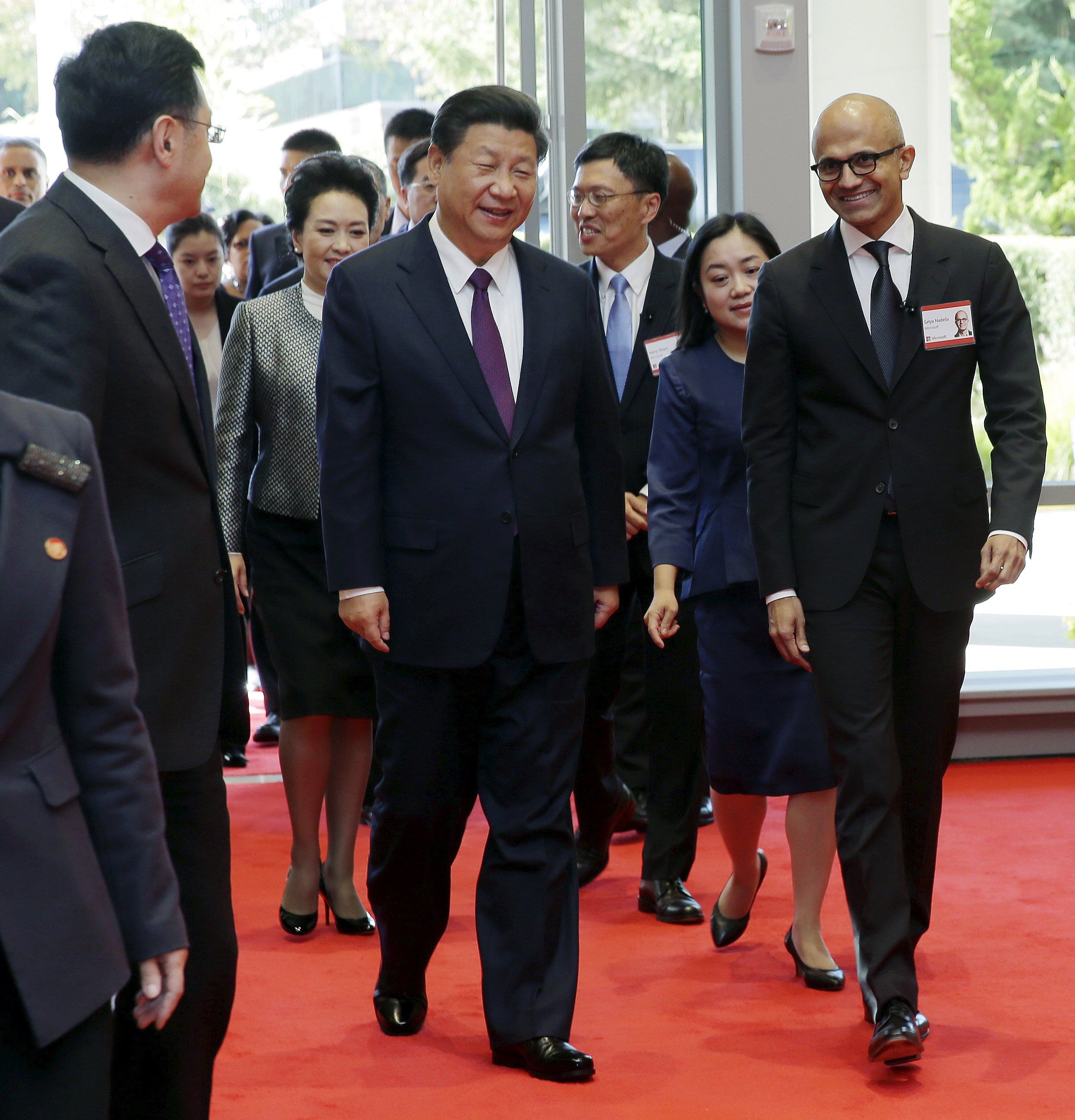If Mr Xi Jinping, China's supreme leader, understands anything, it is the nature of power. That is why his first call during a week-long state visit to America was not on the political leaders in Washington but on the business elites in Seattle.
Mr Xi has concentrated more power in his bear-like, avuncular personage than any Chinese leader since Deng Xiaoping, and arguably than Mao Zedong himself. The irony is that he heads a nation that looks more vulnerable, in some ways, than it has done for years. China's economic model is audibly creaking and in need of urgent repair. Growth has slowed to practically half its level of a few years ago. This week, figures revealed that the manufacturing sector, once the economy's mainstay, is slowing fast.
The United States is exactly the reverse. Compared with Mr Xi, who has few checks on his power and who can expect seven more years in charge, President Barack Obama looks like a spent force , despite his recent active streak. He must answer to a hostile Congress and has barely more than a year left in office.
Yet America is resurgent. Its tech companies are on top of the world; it has unearthed vast, cheap energy resources at home; and its economy is surging back from the self-inflicted financial crisis of 2008.
Mr Xi has chosen to meet those who are leading the US revival.
In Seattle, where he will spend more time than in Washington, he will rub shoulders with Mr Tim Cook, chief executive of Apple, Mr Jeff Bezos, head of Amazon, Mr Warren Buffett, a legendary investor beloved in China, and Mr Bill Gates, co-founder of Microsoft. Their authority, unlike Mr Obama's, is not circumscribed by term limits.
Although they have to abide by laws on tax, labour and the environment, they wield enormous influence over how those rules are set. And they enjoy economic and social clout that goes well beyond the reach of government.
Accompanying Mr Xi are prototypes in the same mould, such as Mr Jack Ma, founder of Alibaba, which has a virtual monopoly over China's Internet economy; Mr Pony Ma, whose Tencent runs the WeChat social media app used by about half a billion Chinese ; and Mr Zhang Yaqin, who defected from Microsoft last year to become president of Baidu, China's Google equivalent.

Those executives are part of a new elite who control the most vibrant parts of an economy whose problems are concentrated in the inefficient state sector.
Yet, compared with their US counterparts, they answer far more directly to the (one) party in power, which sets rules, censors content and can, if necessary, shut them down.
At the top of that decision-making authority sits Mr Xi, who is not only general secretary of the Communist party but also president of the nation and head of the military to boot.
Three years ago, when he last visited the US for a shirtsleeve shindig with Mr Obama on a Californian ranch, even close China-watchers did not know what to expect. Many thought he would be a low-key part of a collective leadership in the manner of Mr Hu Jintao, his predecessor. Others thought that, if he exerted authority, it might be to open up the political process.
Both predictions have proved wrong. Mr Xi has surprised everyone with his exercise of raw power, unleashing a sustained attack on corruption in the Communist Party and turning the screws on a People's Liberation Army that he deemed too flabby and compromised to defend China's interests. Under him there has been a crackdown on dissidents, lawyers and academics. Abroad, too, he has led a more assertive policy, building runways on artificial islands in the South China Sea and setting up international institutions that may one day come to rival the World Bank and International Monetary Fund.
When Mr Xi began to show his authoritarian tendencies, one interpretation was that he was clamping down politically to prepare the way for economic liberalisation. It has not panned out thus.
Although he told his US hosts he would press ahead with economic reforms, in practice, his instincts to control have trumped those to let the market decide. Little pressure has been put on state-owned enterprises to sharpen up. For every interest rate liberalisation, there has been a state edict, state intervention or a panicked dose of state spending at the first sign of slowdown.
This is emerging as the central contradiction of Mr Xi's presidency.
A man whose experience at provincial level in China led him to understand the power of the private sector is loath to let go. A leader whose instincts tell him that innovation and vigour in America are to be found in Seattle and not Washington is drawing yet more power to his office in Beijing.
Mr Xi has shown that he knows how to wield political power. What he has not yet done is to unleash anything like the full potential of his country's private sector. His ability to do so could determine how well China's economy does for years to come.
FINANCIAL TIMES
